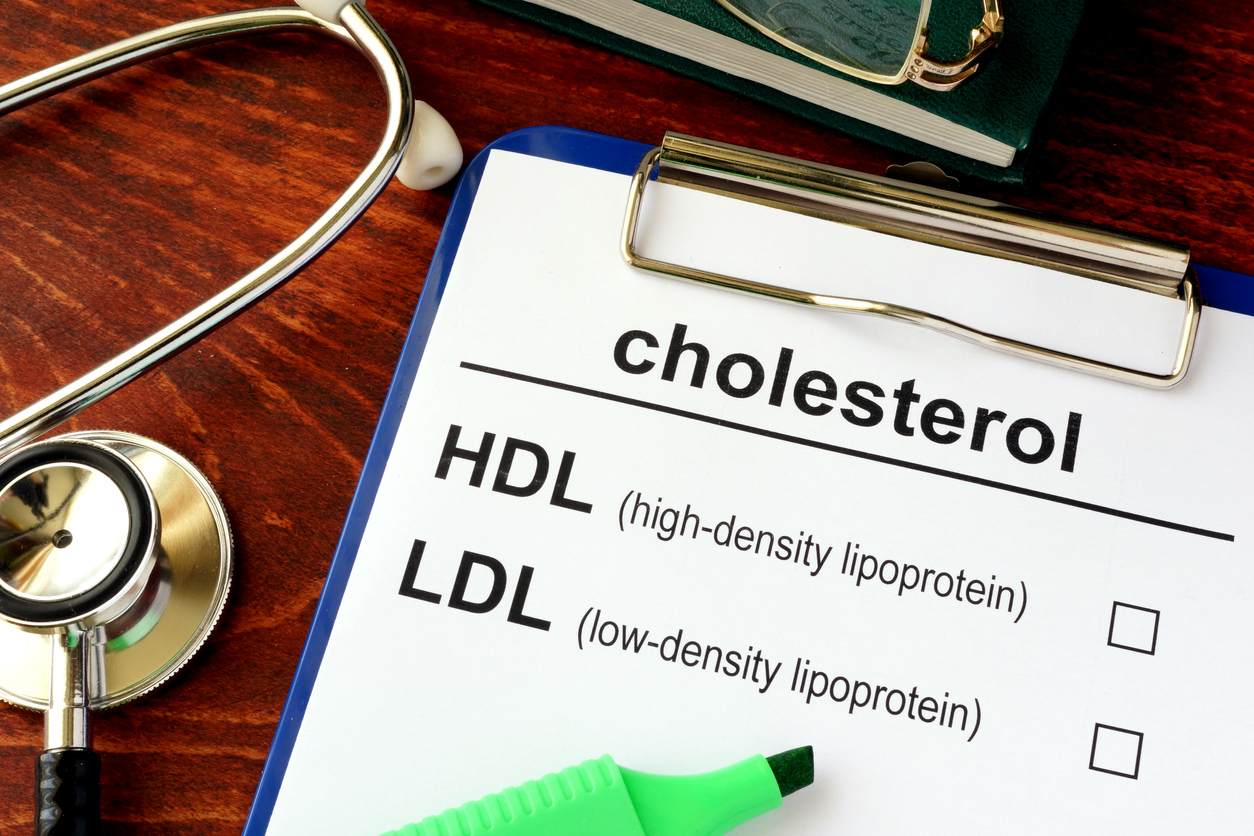
Lipids are the fats that are in your blood. These fats include low-density lipoprotein (LDL) cholesterol, high-density lipoprotein (HDL) cholesterol, and triglycerides. Lipids are essential to your body’s normal functioning.
LDL cholesterol is composed of low-density lipids found in animal-based foods such as meat and dairy products, and HDL comes from plant-based foods such as olive oil. LDL is called “bad cholesterol” whereas HDL is “good cholesterol.”
If the lipid levels in your blood are too high or too low, you could develop a lipid disorder. Dyslipidemia means your lipid levels are too high, and hypolipidemia means your lipid levels are too low. Let’s talk about what this means and what can be done to get your body back in proper balance.
High Cholesterol (Hypercholesterolemia)
Low-density lipoprotein buildup in your blood can contribute to the formation of plaque in your arteries and can create blockages through LDL deposits. With high amounts of LDL in your blood, you are at risk of developing atherosclerosis, which makes you vulnerable to heart attacks and stroke.
To reduce your LDL levels, try limiting your intake of fatty meats and high-fat milk and cheeses. It is a good idea to also increase your intake of foods that are rich in HDL such as fish, olive oil, and high-fiber cereals.
High Triglycerides (Hypertriglyceridemia)
Triglycerides that are present at very high levels in your body increase your risk of developing high blood pressure and diabetes. The condition is called hypertriglyceridemia.
If you are consuming excess calories, especially from sugary and starchy foods, your body converts the excess calories into triglycerides and stores them in your fat for use later. Your body then uses triglycerides for energy when you are not eating. If they are never used, the triglycerides remain in the fat tissues.
Patients who are overweight or have heart disease, type 2 diabetes, or pancreatitis have high levels of triglycerides. But you can reduce your triglyceride levels by refraining from eating too many sweets and too much starchy food. Exercise is also key to reducing harmful levels of triglycerides.
High-Density Lipoprotein Cholesterol
High levels of HDL in the blood have been linked to good heart health and a reduced risk of cardiovascular disease. There is a strong genetic component to people with high HDL levels, but lifestyle and dietary changes can help you raise your HDL levels to promote a healthy body.
Symptoms of Lipid Disorders
Signs of lipid disorders include excess belly fat, high blood pressure, and prediabetes. In its early stages, you may experience no symptoms, but a blood test can measure your LDL and HDL levels.
Living a sedentary lifestyle can contribute to a lipid disorder. Medication can also increase LDL levels, so always ask about the side effects of any medication you are taking and ask your doctor about how this may affect your body.
Lipid Disorder Treatment in Tucson, Arizona
Dr. Robert E. Lending is an internal medicine doctor and clinical lipidologist. He also offers concierge medicine service to patients in Tucson and the surrounding communities, but he keeps the lipidology medical service separate from his concierge service.
There are different ways to manage or treat lipid disorders, and no two treatment methods are alike. Dr. Lending will create a highly individualized treatment plan for you, so you get the personalized care that you deserve.
Contact us today if you have any questions about our concierge medical service or would like to schedule an appointment. You may call us at (520) 795-4291 or request an appointment online now. We look forward to seeing you here and helping you stay healthy!



